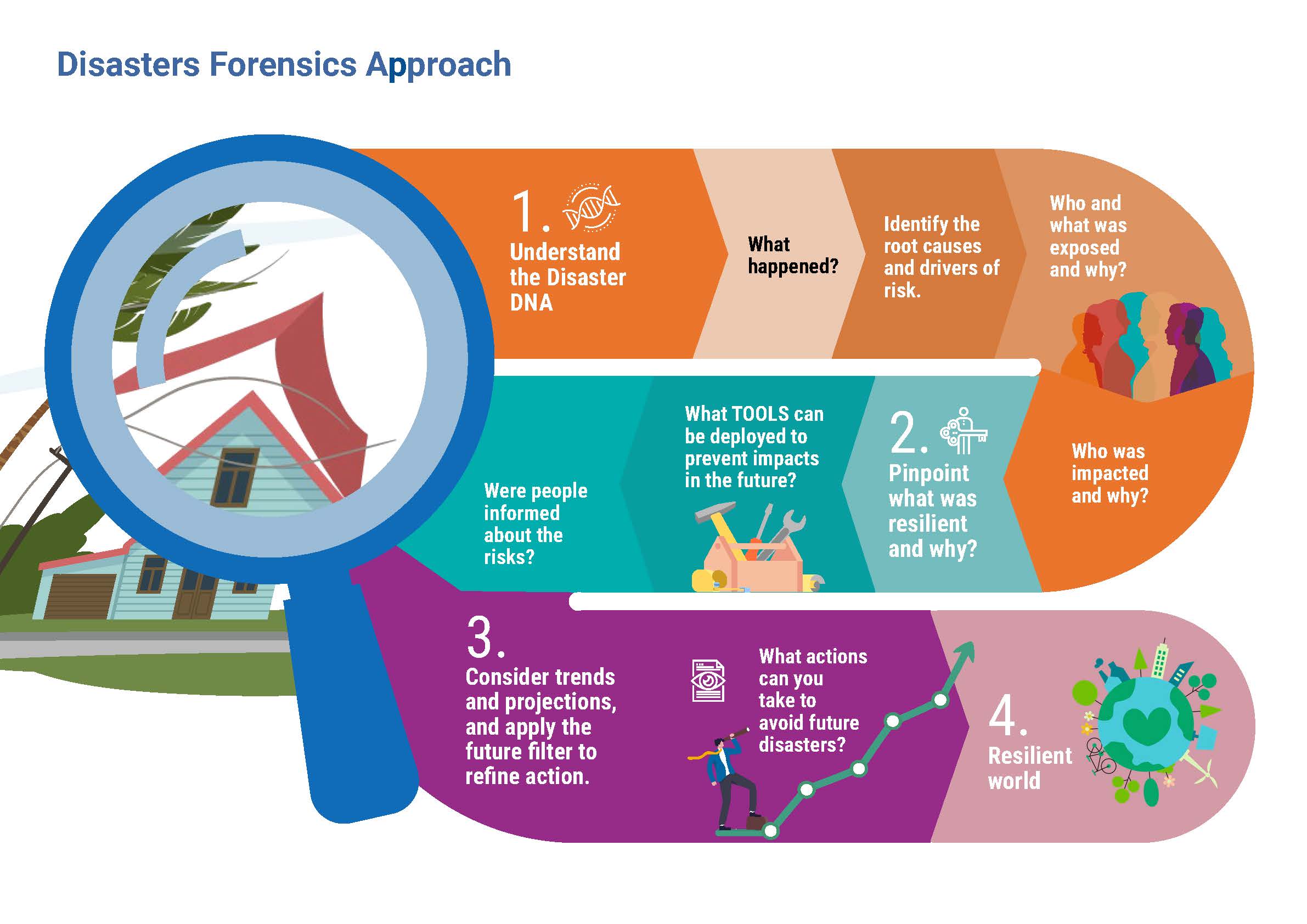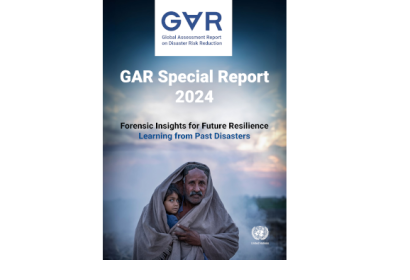A new report from the United Nations, titled "Forensic Insights for Future Resilience: Learning from Past Disasters", urges countries to adopt a forensic approach to studying disasters in order to prevent future crises. Released by the United Nations Office for Disaster Risk Reduction (UNDRR) ahead of the Summit of the Future, the report emphasizes the need for deep technical analysis of disaster causes to reduce impacts and build resilience.
Hazard events are becoming more intense and frequent in all regions of the world. When vulnerability and exposure levels are high, then these hazard events are much more likely to become disasters.
Extreme disasters are not “normal”. Recent climate hazard events have exceeded historical norms as well as the projections of many risk models.
The UN Global Assessment Report on Disaster Risk Reduction (GAR 2024) looks at present and future trends, showing how forensic analysis can enable more targeted and more effective risk reduction.
It presents 10 case studies of recent global disasters, highlighting how vulnerabilities, such as weak infrastructure, exacerbated their impacts. For instance, Cyclone Freddy’s devastating toll in Malawi was partly due to poor infrastructure, while Mexico City successfully reduced deaths in a 2017 earthquake by learning from past events. The report calls for integrating resilience into development and disaster prevention strategies as climate-driven hazards grow more frequent.
Read the full UNDRR press release here.
Find the full GAR 2024 report here.

United Nations Office for Disaster Risk Reduction (2024). Forensic Insights for Future Resilience, Learning from Past Disasters. Geneva.

